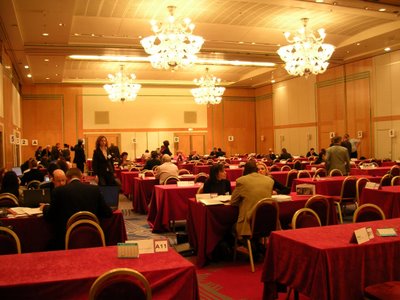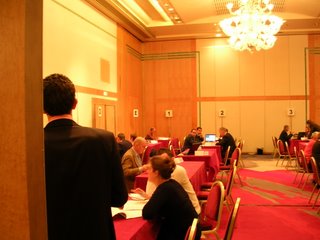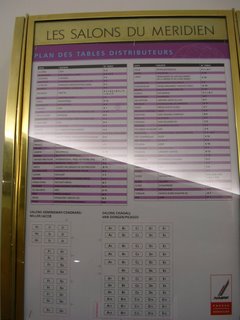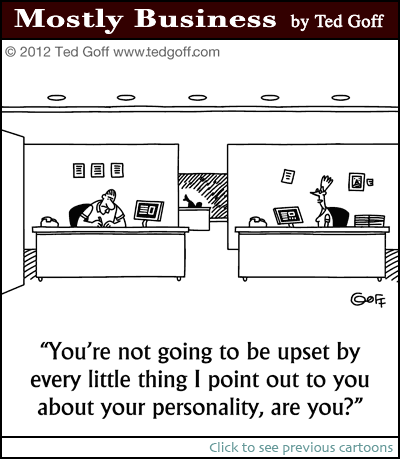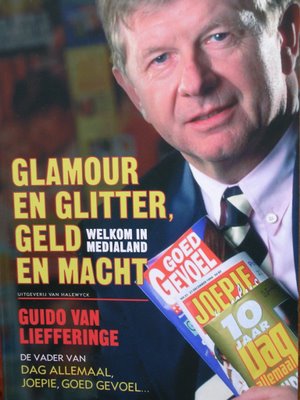
The biography of a fairly unknown man, Mr Van Liefferinge (see picture left), came out recently. Although unknown the man invented all best selling magazines in Belgium during the last 20 years. He also became extremely rich in the process doing so. Guido Van Liefferinge has 'print' running through his veins. Moreover he was a media-mastermind looking after the democratic values of a free, but popular press.
Unfortunately to be able to launch all these successful magazines he had to cooperate with one of Belgians largest publishing houses, De Persgroep. His longtime relationship with this media powerhouse ended beginning 2000 in a disgraceful fight. De Persgroep allegedly removed him wrongful from his position cutting the ties between him, the inventor (or father) and all his magazines (his children, as he writes). He is now fighting a fierce legal battle with his former partner.
The book is more then an account of how he invented the magazines, it is a complaint against the management of De Persgroep. It is a bitter book by a bitter man, although he claims not to be.
He gives the following (cynical) advice to become a successful entrepreneur today:
1. Your primary goal is 'networking'. Alumni of managementschools, high level consultants, members of the establishment, all people who meet each other for the wrong reasons, are goldmines for your career.
2. Lobby. You can not stop sucking up government and her representatives to obtain government funds, subsidies, licenses etc, 'goodies' a normal entrepreneur does not need to build his business in the normal way in a normal deregularised market.
3. Divide et Impera. After having had confidential conversations, go with the info to third parties or change the content and spread around.
4. Keep secret agenda's. Just lie about the real goals of your actions. Remember that these days 'perception is reality'. Act as if your are building a transparent house, but build it on perceptions.
5. Start with 'perception -management'. Tell the world you are the best, do it over and over again, till everybody believes it. Use and misuse your contacts in the media. Lie about the competition or lie about people in your company you don't like anymore.
As said, the above 5 rules are not meant to be followed by 'good' people. They merely explain why 'bad' people become successful entrepreneurs.
Before I knew who he was he called me one day in 1995. He wanted to speak to me about a magazine I was publishing. Since I didn't know him, and since he had called me, I kind of said that if he wanted to speak to me he should come to my office some 70 km from where he had his office. It was as if the caretaker ordered the king to come down to the basement, I realized myself years later. He abruptly said "I think you should come to me, it will be worthwhile". "But I had a car accident," I replied, "I am wearing a collar and I don't have a car anymore." He replied "I still think you should come to me, take a taxi (70 x 2 = 140km!!!!), it will be the best investment you ever made". I went to see him, evidently. Nothing came from it :-) apart from the fact that I learned more about magazine publishing in the 1 hour I was with him, than all the years at school and university.
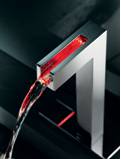 The Importance of Visualization.
The Importance of Visualization. the nanosecond before he reaches out to wash his hands. It is a question we ask ourselves without even realizing it anymore. But our primitive system does raise the question. It wants to protect us from burning our hands. Hot or cold? That is what we need more, products that really talk to us.
the nanosecond before he reaches out to wash his hands. It is a question we ask ourselves without even realizing it anymore. But our primitive system does raise the question. It wants to protect us from burning our hands. Hot or cold? That is what we need more, products that really talk to us.
